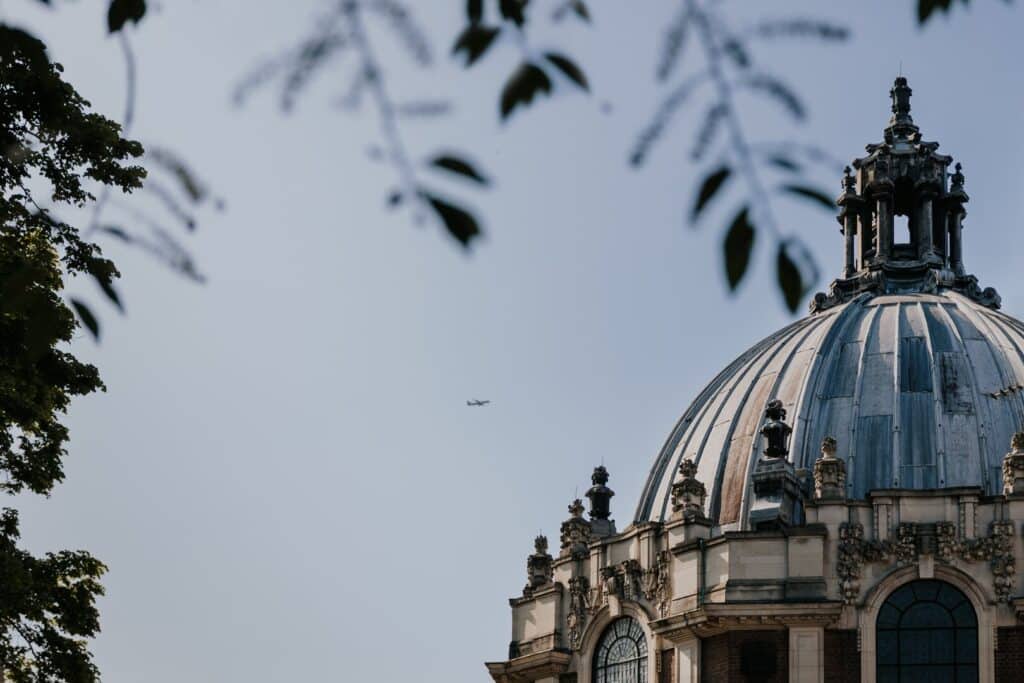From as far back as he can remember, Vedant Dudraj “always found it easy to pick things up.” It was clear that this son of Nepalese immigrants had a gift, and teachers at his West London state primary school were early to spot his potential— especially in both mathematics and art—encouraging him to apply for a bursary at Papplewick School.
“I got an art scholarship, a 50% bursary,” he says. “But it put a huge financial strain on my parents. My Dad works as a travelling chef on the trains, and my Mum was an Intercity customer host. They took extra shifts and part-time jobs to cover the fees. They were working so hard that when I came home, they often couldn’t be there to see me.”
Dealing with the stress of working multiple jobs aside, Vedant’s parents were equally anxious about sending him to boarding school. Though, they needn’t have been. Much like within his academic life, he thrived. “It was a transition, but I felt quite confident about it. It was fun living with my friends. State schools stick very closely to the curriculum. I didn’t know there were other options available. I was shocked by all the exciting, new, extracurricular activities on offer.”
While Papplewick may have prepared Vedant for life as a boarder, he remained comparatively unaware of the existence of Eton College. “I guess it’s not the kind of background you’d expect for a boy at this school,” he supposes.
Under the encouragement of his former prep to apply, Vedant arrived at the grounds within a cohort of boys, laying eyes upon Lupton’s Tower and the bow-tied uniform for the first time, to take the fabled admissions test. Naturally, he succeeded.
Then my mum grew ill and couldn’t work, so Eton offered me the full 100% with extras to cover my uniform, stationery, and laptop.
His parents cried when they opened the letter offering him a place. “I was in bed on my laptop when they came in to tell me. We were renting a 1920s semi in Reading at that time. Some people from Eton came to the house, did an assessment and offered me a 90% bursary. Then my mum grew ill and couldn’t work, so Eton offered me the full 100% with extras to cover my uniform, stationery, and laptop.”
Though Vedant admits it was a shock to the system, it didn’t take him long to adapt. “Eton is a huge campus and orienting yourself can be difficult. As is the language. But you get used to calling teachers ‘beaks’ and lessons ‘divs’. I enjoyed soaking it all up.” Vedant promptly immersed himself in the Eton culture.
“In my second week there was an amazing son et lumière show. That really impressed me and I signed up straight away.” Subsequently, he ended up running Eton’s theatre crew, becoming a specialist in programmable lighting.
“The technical kit we have at Eton is better than the equipment they use in most of the West End. I’ve been involved in twenty-five productions now. My favourite was the Monty Python musical, Spamalot. I didn’t get much sleep while we were working on it, but it was so much fun.”
As a naturally competitive boy, Vedant relished immersion in an environment where “people are working all the time. Even if they say they’re not working, they are working. When all your friends are pushing themselves as hard as they can, you do it too. You don’t feel weird about it. It’s cool.”
Vedant’s hunger for responsibility, and passion for curiosity, has seen him take on roles from chapel verger, to setting up Eton’s own series of TED talks. “The best thing about this place,” he says, “is that if you get an idea, they’ll help you run with it. In my second year I won the Hoberman Prize for Social Entrepreneurship with a design for a smartwatch called Lattice [for tackling stress, sleep deprivation and poor productivity].”
When Vedant volunteered for an anti-trafficking charity in Nepal, Eton gave him a £1,600 travel grant. “We went over there to teach music and made a documentary which I’m still working on. The school has been incredibly supportive.”
Eton has grown Vedant from a boy naturally gifted, to one for whom the possibilities of success now have few limitations. None of this would have been possible without the generosity of Eton’s many donors. “Seize every opportunity,” he insists. “Throw yourself into it. That’s what Eton has taught me.”


